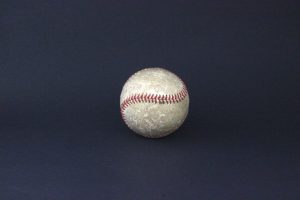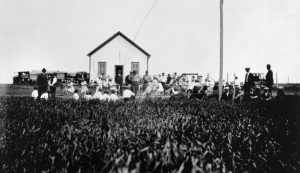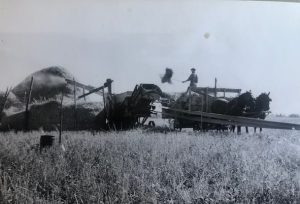Brushy Lake 1926-1950, Warm Weather Fun
Enjoy the video, Brushy Lake and Warm Weather Fun, with a transcription
Brushy Lake School was built in 1926 and was named for the local lake. The school sometimes closed due to cold weather or low enrollment. During the Depression, it was difficult to raise funds to pay a teacher and expenses. As many other country schools, the building was sold and moved; students were consolidated with the Three Hills District in 1950.
The close-knit settler communities surrounding Beiseker enjoyed visiting throughout the year, but warm weather allowed more frequent social gatherings. Many families would meet on Sundays for a well-deserved rest from the farm and chores.
“I remember when Edward VIII was king of England and we had a picnic. Then he quit and we had another picnic for King George VI. They were wonderful.”
Julie Perks
In the late spring, schools held Sport’s Day to compete with other schools.
“A big thing was the track meet, we had competitions in high jump, running and relay races. (Nearby) schools would come down for competition.”
Matt Schmaltz
“The whole community came and brought food and we’d have races. It was a very fun occasion.”
Leonard Hagel
“At the end of the school year, we held a picnic and all the families came. We had games and races and tug of war. Everybody took part. Then we had a nice big lunch with lemonade, and that would be the end of the school year.” Vera Schmaltz
In the fall, the older children helped with the harvest. The boys worked in the fields and the girls would help with canning and cooking for the field teams.
“At harvest, my dad and three cousins would combine together. At 4:30, the ladies would bring us out a lunch. At 9:00 or 10:00 pm., we came in for supper. It was fun, all these old guys laughing and talking.”
Monty Metzger
Even though warm weather meant hard work on the farms, the settler community made the best of it. They came together to share the load and enriched each other’s lives with friendship and encouragement.
Before the settler community arrived in Beiseker, summer was also a time of hard work and fun for Blackfoot children. Instead of taking the summer off, their education proceeded year-round. Summertime was an important opportunity to travel for trade and fulfilling relations, and also a time to prepare for the long winter.




